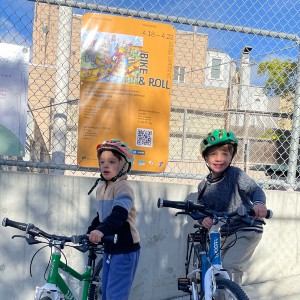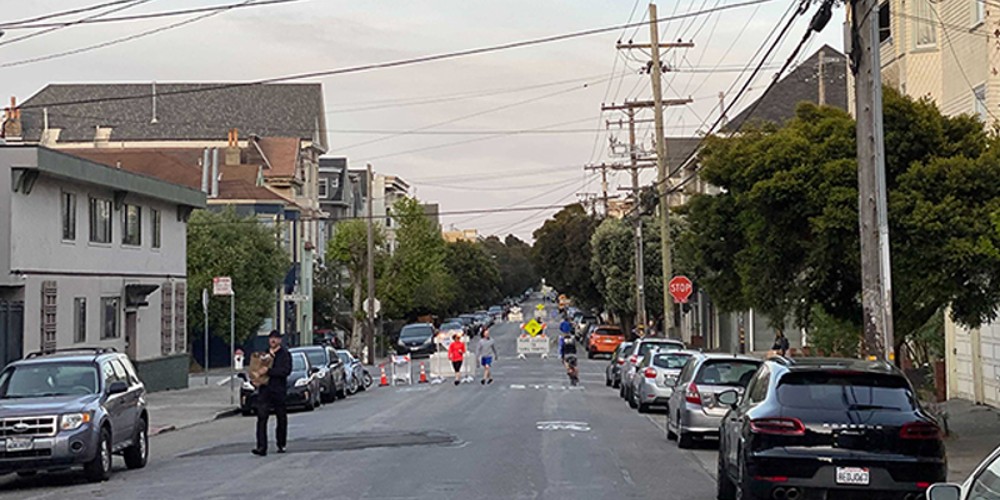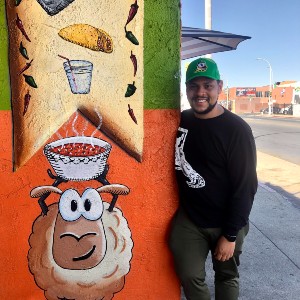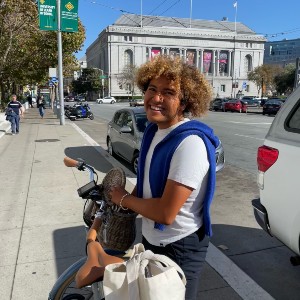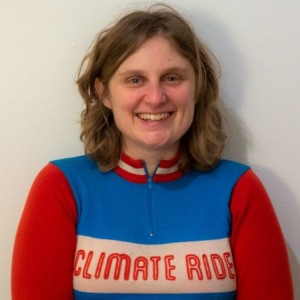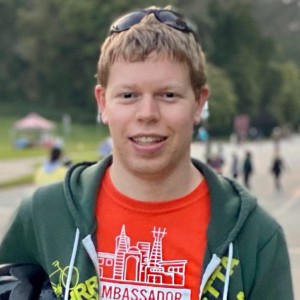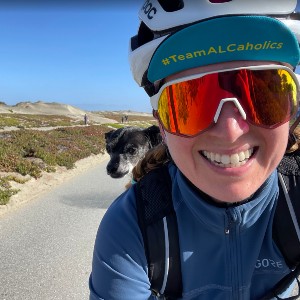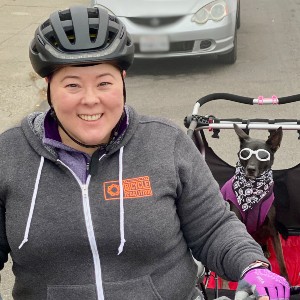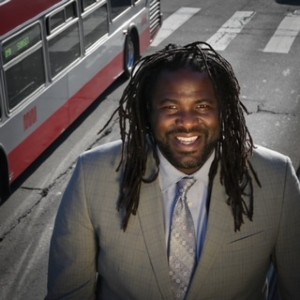UPDATE: Watch the recording of the candidates’ statements at our annual board meeting here.
It’s time for the San Francisco Bicycle Coalition annual election of our all-volunteer Board of Directors. Here you will find information about the process, statements by the candidates, and links to questions you may have.
The timeline is:
- Online voting begins on Jan 23, 2023 and ends Feb 1, 2023 at 9:59 pm PST.
- Members will each receive an individual e-mail on Jan 23 with a code and link enabling them to vote. This code will be sent to the e-mail address on file through which the member receives communications from the SF Bicycle Coalition. Please add invitations@mail.electionbuddy.com to your contacts. If you do not see your invitation in your inbox, please check your spam folder.
- Opportunities to meet and hear from candidates will be available at our Annual Member Meeting on Jan 19.
- Only current SF Bicycle Coalition members as of Friday, Jan 13, 2023 at 11:59 pm PST may cast a ballot.
- Results will be announced in the Biker Bulletin email and on our website.
- If you have technical questions regarding voting, please contact our election administrators at boardvoting@sfbike.org.
ABOUT SF BICYCLE COALITION BOARD ELECTIONS
The San Francisco Bicycle Coalition is governed by an all-volunteer Board of Directors. Any SF Bicycle Coalition member can run for the board. The board is responsible for ensuring the organization’s financial health and achievement of its mission. The 15-member board is elected by the membership. There is a board election each year and terms are two years. Eight seats on the board of directors will be elected by the membership this year for the term beginning at the first board meeting following this election until the new board is seated following the 2025 board elections. A full timeline and detailed description of the process can be found here.
This will be our sixth board election using ranked-choice voting, giving members the chance to rank their votes in order of preference. Our board of directors adopted ranked-choice voting in the hope that it will encourage increased member participation in our elections and our work. For more information about multi-winner ranked-choice voting, click here.
If you are a member who is interested in learning more about board service in future years, please contact us at boardnomination@sfbike.org.
CANDIDATE STATEMENTS
All candidates completed an online questionnaire to declare their interest in running for the board. You can view all candidate questionnaire responses here.
All candidates participated in the board interview process.
RAYNELL COOPER
he/him
I’m thrilled to be a candidate for the San Francisco Bike Coalition Board. If elected, I would bring a lifelong passion for problem-solving, stakeholder engagement, and transportation planning to support SFBC’s mission to make SF as friendly as possible of a place for cyclists of all ages and abilities. I learned how to ride as an adult here in San Francisco so I know first-hand the barriers to cycling in the city. As a parking planner at SFMTA and a member of the most recent Redistricting Task Force, I’ve gained perspective on how to work with communities in San Francisco to achieve positive outcomes I’m looking forward to continuing to think critically about our public right-of-way, both professionally and in my growing role as an advocate for better community spaces in San Francisco, and would be honored to have your vote!
ERNESTO CUELLAR
he/him
“As San Francisco goes, so goes the nation ” is a phrase we love to say when speaking about our values and the boundary pushing work in our City. I believe the Bicycle Coalition has been and will continue to be part of this legacy of transformative work, which is why I am excited to be running for Board of Directors.
My name is Ernesto Cuellar and I am a proud Bayview-Hunters point kid raised by our communities and our public schools. Through lived experience, professional and advocacy work I understand the importance of street safety from traffic violence, but more personally the importance of decentering carceral methods and systems of punishments as enforcement and rather focus on infrastructure to address community needs.
It would be an honor to serve on the board and be able to support the work of everyone in the coalition to the best of my abilities.
JOANNA GUBMAN (INCUMBENT)
she/they
SF should be a biking, transit, and walking-first city – making it safer, more just, and more vibrant. The SF Bicycle Coalition has an essential role to play in getting us there, and it’s been a privilege to serve you on the Board these past two years.
By day, I run Urban Environmentalists; I’ve also held many community volunteer roles. As an SFBC Board Member, I’ve focused on governance, updating our elections process, and supporting board & staff cohesion. I also pitch in wherever helpful and volunteer at events.
Next term, I will prioritize fundraising and membership growth. The Board must also support a community process to chart a re-envisioned, intentional path for the organization. The landscape has altered: covid catalyzed change, we’ve had big wins, new groups have sprung up, SFBC has strengthened its commitment to antiracism, e-bikes have changed everything, and there’s a sense of possibility. Let’s go!
ROAN KATTOUW (INCUMBENT)
he/him
As an immigrant from the Netherlands, I’ve been biking my entire life. Having grown up there, I know that safe infrastructure is what makes biking a part of everyday life. It’s what gave me the freedom to go places on my own as a teenager, long before I could drive.
I’ve been a member for 10 years, and a board member for 2 years. During my first term on the board, I served on the audit & endorsements committee, leading the endorsements process for the 2022 elections among other things. I’m running for a second term because I would like to continue this work, further improve our internal processes, and apply my knowledge of local government and politics.
At my day job, I lead a team of software engineers at Wikipedia. After work, I advocate for safe streets, bike lanes and transit, and volunteer with local election campaigns.
MEAGHAN MITCHELL (INCUMBENT)
she/her
What does being part of a coalition in San Francisco mean to you? For me, being part of a coalition in San Francisco means so much more than uniting people to promote a common cause. It requires acting as a community leader, connecting those who support an initiative with those who may need more convincing. We must remember to be inclusive and to consider what is best for all members of this city, not just the neighborhood closest to us or the neighborhood where everyone looks like us.
The past two years have shown me the significance of this kind of work and the importance of continuing this mission. I am confident in my ability to lead, and I am thrilled to run for another term on the San Francisco Bicycle Coalition Board. I hope that I can count on your vote.
VICTORIA NORMAN
she/her
It’s imperative we rely less on fossil fuels – as individuals and as a society– so when I moved to San Francisco, I began riding a bike (for the first time as an adult) to commute from the Sunset to the East Bay. Over time, I really got into cycling and it’s now both a mode of transportation and an activity that brings me much joy. The movement to keep car-free and slow streets open has galvanized me into getting more involved with SF Bicycle Coalition; I’d be thrilled to work on your behalf to continue the fight in making our city safer and more accessible, where a bicycle (rather than a car) is the commonsense mode of transportation.
My day job is managing a nonprofit in the sustainability sector. I’m also an indoor cycling instructor at 17 Reasons Why AC in the Mission. This year, I’m doing my third Climate Ride, raising funds for the Coalition.
JULI UOTA (INCUMBENT)
she/her
The SF Bicycle Coalition’s Adult Learn to Ride class changed my life. Being on a bike made me rethink how I see myself, move around my city, and connect in community. Serving on this board, and teaching Adult Learn to Ride, help me return the empowerment I received. After 15+ years as a member and volunteer, much of that time as part-time staff, I continue to dedicate my time to this organization because of its power to change lives. While on the board my highlights have been the reduced rate membership and chairing the staff-board committee that hired our new ED. I ask for a third term to complete projects near my heart. I want to continue to remove barriers to biking, further institutionalize a strong Board-Staff relationship, ensure a fiscally sound future, and foster the Theory of Change project creating clear principles to steer our future of service.
WILLIAM WALKER
he/she/they
Hello, my name is William Walker. I grew up in Diamond Heights-Glen Park, and am currently a Lakeview resident. In 2020, I experienced a serious bike accident on San Jose Avenue where a speeding motorist forced me to come to a sudden stop along M Oceanview rails. I flew over my handlebars and continue to suffer from the injuries.
As the Bike Coalition continues to advocate for safer streets in historically Black, brown, First Nation Indigenous, Asian, Pacific Islander and People of Color neighborhoods, I hope to help build authentic coalitions that are inclusive of the communities where new bike, transit and car-free infrastructure investments are to be built.
For more than 30 years, I have been an advocate, a board director, planner, community organizer, and practitioner of making California cities a better place in over a dozen governments, nonprofits and community groups.
